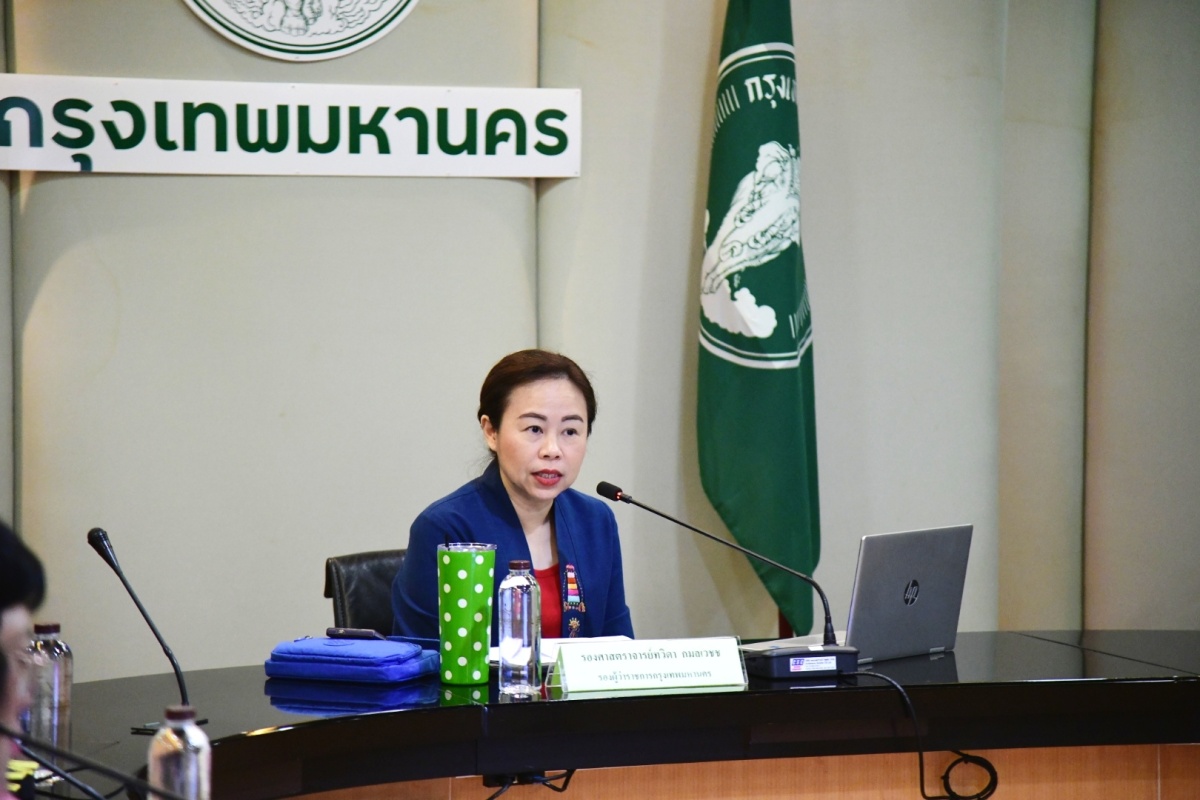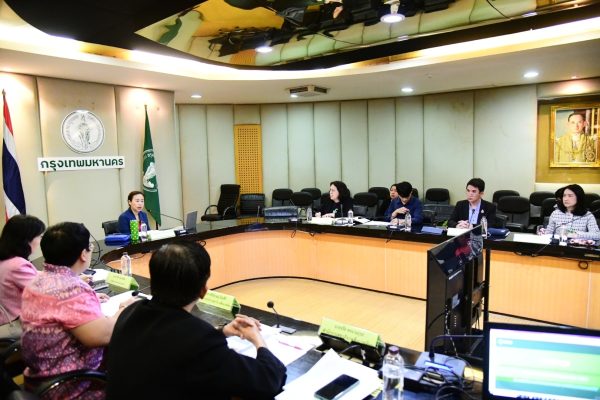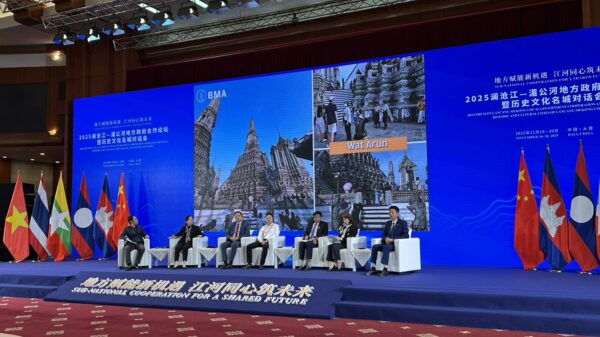(February 25, 2025)—Bangkok is taking proactive steps to mitigate the health impacts of PM2.5 air pollution, following the Occupational Disease and Environmental Disease Committee’s (ODEC) issuance of measures for designated surveillance areas.

The move comes after the Cabinet’s resolution on January 28, 2025, endorsing the designation of such areas under the Occupational Disease and Environmental Disease Control Act B.E. 2562.
Assoc. Prof. Tavida Kamolvej, Deputy Governor of Bangkok, chaired the first ODEC meeting on February 25, 2025, both in person at the Nopparat Room, 5th Floor, Bangkok City Hall and via online platform.
The committee is tasked with refining and implementing measures to address illnesses arising from PM2.5 exposure. The Department of Disease Control has provided guidance to Bangkok on the designated areas and appropriate interventions.
To ensure effective and consistent surveillance, prevention, and control of diseases caused by exposure to particulate matter measuring 2.5 microns or smaller, the Department of Disease Control, under the Ministry of Public Health, has notified Bangkok of designated areas requiring targeted interventions. These areas will implement various measures tailored to the specific circumstances regarding particulate matter exposure.
The designated zones are classified into two levels: those needing surveillance and prevention where the average PM2.5 level exceeds 37.5 µg/m3 but remains below 75 µg/m3. Proposed measures include: 1) providing sanitary masks to vulnerable populations; and 2) establishing dust-free areas or rooms in facilities such as hospitals and schools. In response, Deputy Governor Tavida emphasized the importance of preparing additional dust-free rooms in all 12 public health service centers to enhance public health readiness.
To effectively address areas requiring disease control due to PM2.5 levels exceeding 75 µg/m3 over a 24-hour period, several measures must be implemented. First, it is essential to continuously provide sanitary masks to vulnerable populations and establish designated dust-free areas in buildings subject to surveillance and prevention efforts. Second, government agencies, state enterprises, and other public entities should prioritize flexible work arrangements, such as working from home, while the private sector should also consider this option when appropriate.
Third, strict enforcement of existing laws is crucial to ensure compliance and accountability. Fourth, utilizing legal mechanisms outlined in Section 35 of the Occupational Disease and Environmental Disease Control Act B.E. 2562, the Bangkok Occupational Disease Control Committee should advise the Director-General of the Department of Disease Control to identify areas needing monitoring. This proactive approach is vital to prevent serious harm to the health and well-being of residents, allowing for the establishment of tailored rules and measures for effective surveillance, prevention, and control of PM2.5-related diseases based on the specific conditions of each area.
Furthermore, the Committee on Occupational Diseases and Environmental Diseases has approved a set of five additional measures to enhance disease control in affected areas. These measures include: 1) reducing exposure to PM2.5 dust, 2) risk communication, 3) proactive health surveillance, 4) reactive health surveillance (environmental medicine), and 5) notification, reporting, and investigation of diseases.
According to data from disease surveillance related to air pollution in the Bangkok area, collected from 69 public health service centers and hospitals under the Medical Service Department, there were 37,995 reported cases of illnesses linked to PM2.5 dust between January 1 and January 31, 2025. Additionally, from February 1 to February 19, 2025, the number of patients increased to 28,029, highlighting the urgent need for effective public health interventions.
Since October 2024, Bangkok has distributed a total of 958,679 PM2.5 dust prevention masks to at-risk and vulnerable groups through district offices and public health centers, with the latest data recorded as of February 24, 2025.
Deputy Governor Tavida announced that a joint meeting is anticipated within the next 1-2 months to address emerging issues. “In April of last year, we faced significant challenges in controlling various diseases, including those related to temperature fluctuations, fires, and chemical exposures,” she noted, emphasizing the need for ongoing collaboration to tackle these pressing health concerns effectively.




